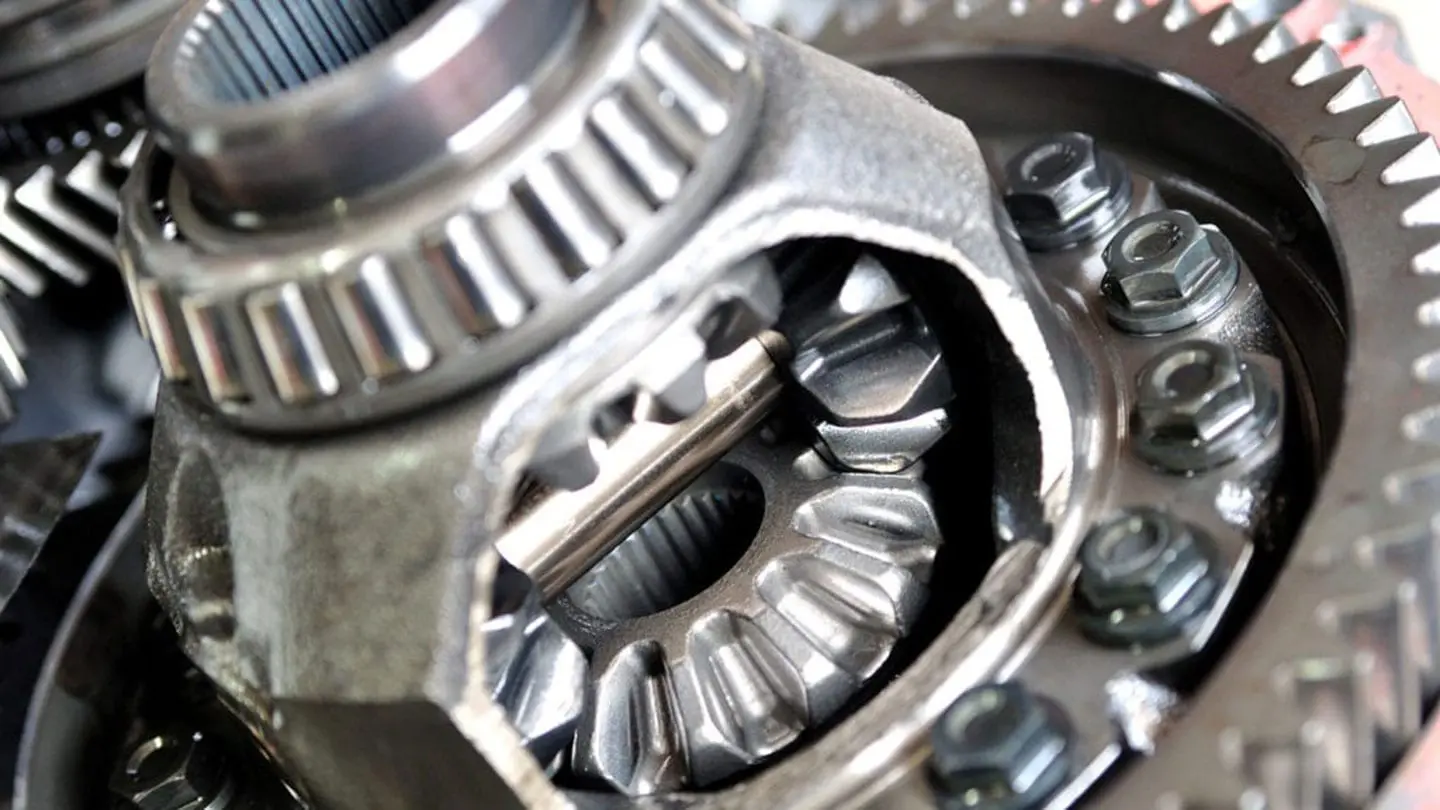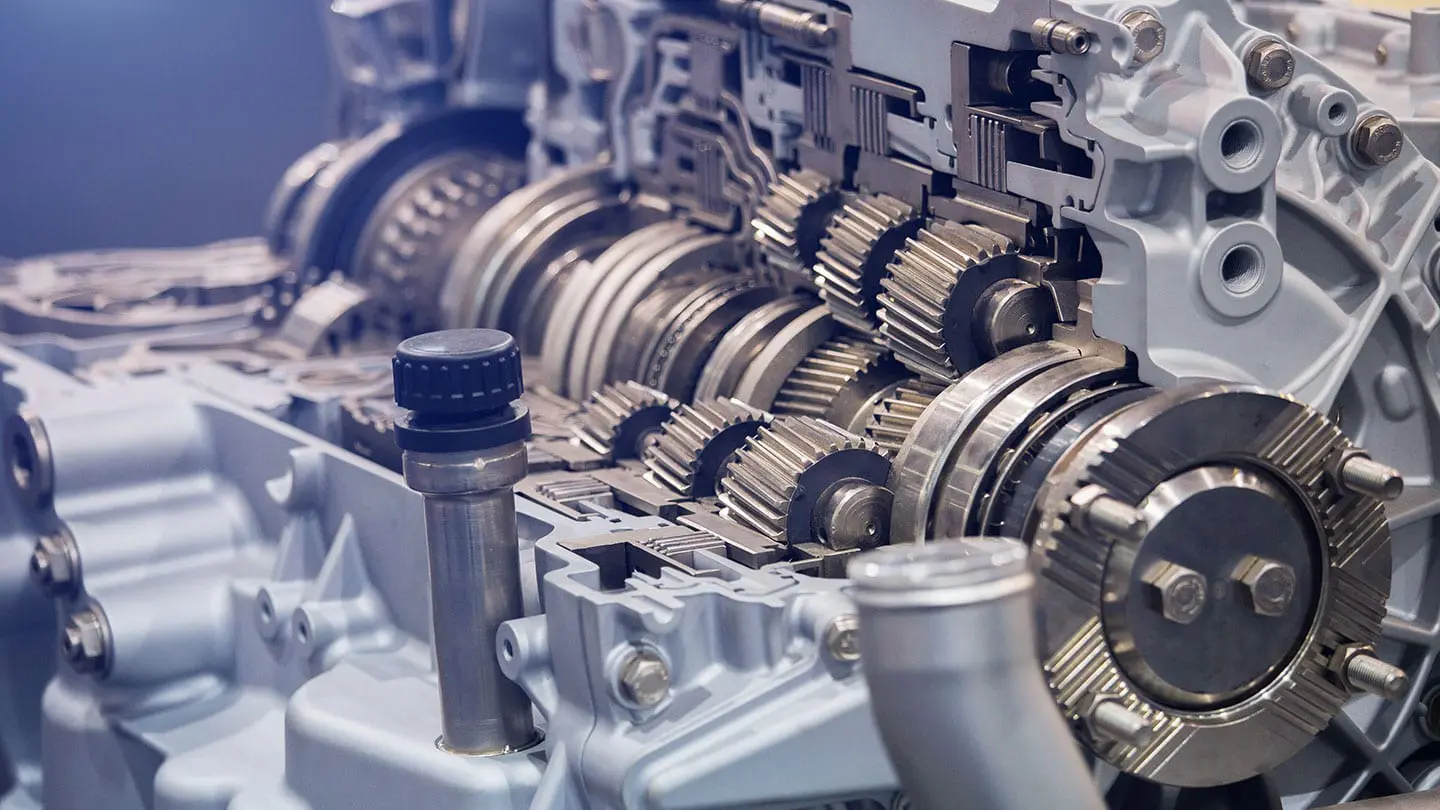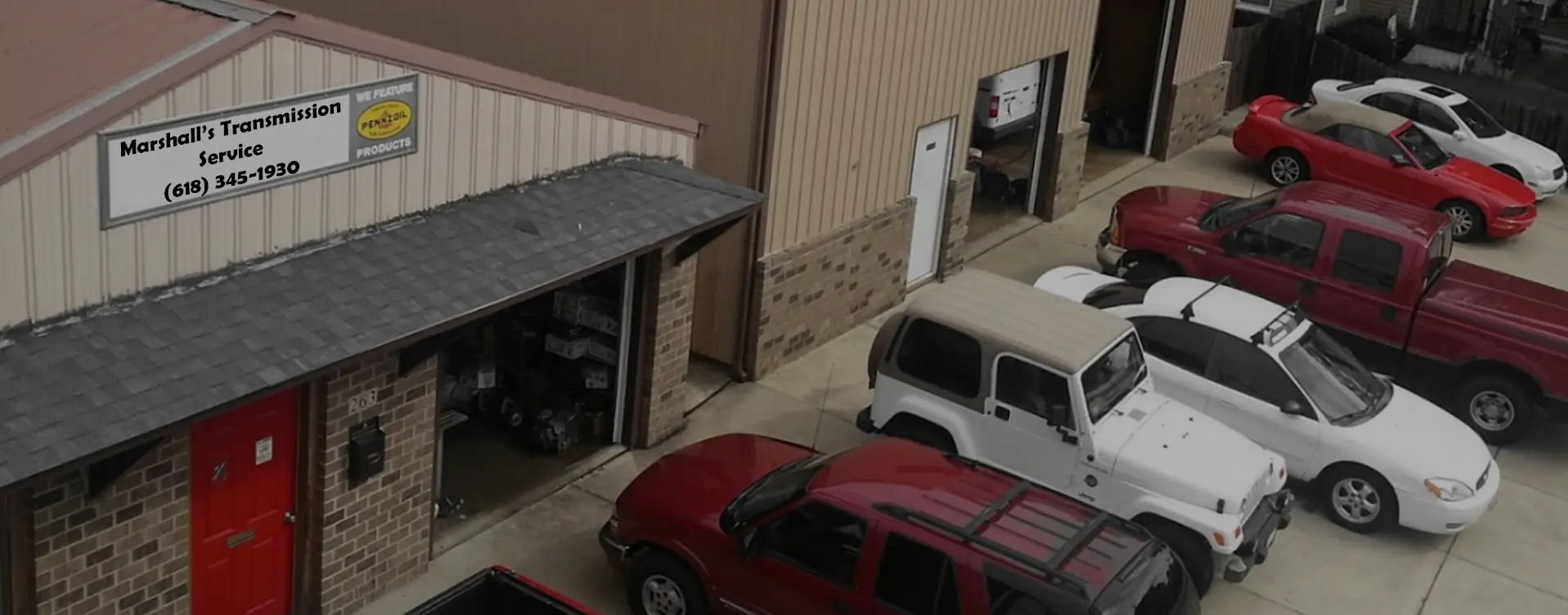Here’s What You Need To Know About Car Differentials and How To Fix Them
When it comes to standard automotive transmissions, many vehicle owners couldn’t tell you the first thing about what’s under the hood of their vehicle. However, this component of your vehicle plays a huge role in how your car, well, rolls. Even for well-informed car owners, understanding the transmission on a deeper level alludes them. So, when we say differential, most of you probably wear confused looks all over your face. The differential is a component of your vehicle’s transmission, and it also has a big job. Read on below for details about your car’s differential, what it does, how it works and what you can do to prevent problems! For many Glen Carbon, IL drivers, differential issues aren’t something they think about—until they hear a noise or feel vibration while driving. Unfortunately, by the time symptoms appear, internal gear wear may already be occurring. Understanding this critical drivetrain component can help you recognize early warning signs and avoid costly repairs.
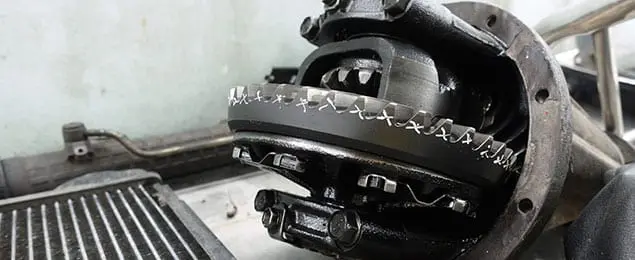
What Is a Differential?
The transmission takes the power created in the engine and transfers it to the wheels. Imagine if all the wheels spinning at the same right, all of the time – it would be difficult to control your car. The job of the differential is to allow the wheels to spin at different rates, which helps ensure smooth handling and easy speed control. Now, after hearing that, you can imagine why differential problems could be a huge issue right? Of course, you can, but how do you know there’s a problem? That’s coming up next!
More specifically, the differential uses a series of precision-cut gears—commonly referred to as the ring and pinion gears—to distribute torque between the drive wheels. When your vehicle turns, the outside wheel must rotate faster than the inside wheel. The differential allows this to happen smoothly. Without it, you would experience tire skipping, unstable handling, and excessive drivetrain stress. Front-wheel-drive vehicles typically have a front differential integrated into the transaxle, while rear-wheel-drive vehicles house the differential in the rear axle assembly. All-wheel-drive and four-wheel-drive vehicles contain multiple differentials. Because these components operate under high pressure and heat, proper lubrication and gear alignment are critical for long-term durability.
What Are The Common Problems?
There are a number of things that could tip you off to a differential problem. While this may not be your issue, you should still see a qualified mechanic if you notice any of the following symptoms of a bad differential on your transmission.
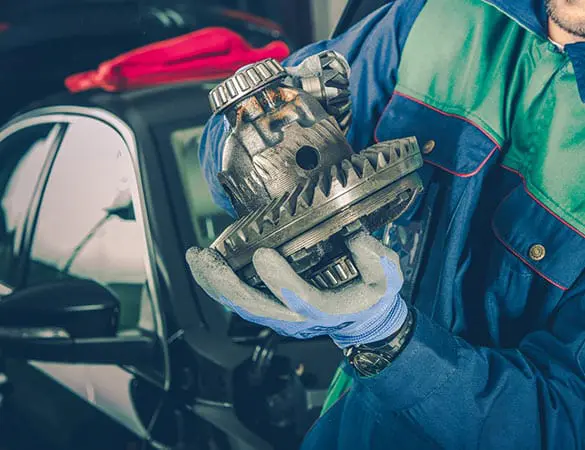
- Transmission Fluid Low – While this may not be reason enough to call your mechanic when coupled with other symptoms it’s a pretty telling sign that something is wrong. Low or contaminated differential fluid is one of the most common causes of premature gear wear. As mileage accumulates, gear oil gradually degrades from constant exposure to heat and internal friction. If axle seals begin leaking—even slightly—fluid levels can drop and internal gears may overheat.
- Whining Noise – This could be an indicator that your differential has problems. It’s one of the most common signs, and it’s characterized by a howl or whine sound that increases in volume as the speed of the vehicle increases. It’s mainly caused by a lack of lubrication. A high-pitched whine that increases with vehicle speed often points to worn bearings or improper gear contact patterns inside the differential. In many Glen Carbon repair inspections, this noise is the first noticeable symptom drivers report.
- Transmission Slips – This symptom is when the vehicle slips in and out of gear without touching the shifter. It’s mostly caused by low oil levels. While slipping is commonly associated with transmission problems, drivetrain issues—including severe differential damage—can create similar drivability concerns, especially in rear-wheel-drive and four-wheel-drive vehicles.
- Burning Smell – The burning smell has to do with leaking oil. Without proper lubrication, the components cause the metal to burn oil at a higher temperature, hence the burning smell. A strong, sharp burning odor may indicate overheated gear oil. When lubrication fails, friction increases rapidly, which can damage gears, bearings, and seals if not addressed promptly.
What Can I Do?
If you notice these symptoms, the best thing that you can do is to call a qualified mechanic to do a thorough inspection and diagnosis. They’ll be able to find the problem and let you know how to best fix it. Preventative maintenance is the most effective way to protect your differential. Most manufacturers recommend inspecting or replacing differential fluid between 30,000 and 60,000 miles, depending on driving habits. Vehicles used for towing, hauling, or frequent stop-and-go driving may require more frequent service due to increased heat buildup. If you live in Glen Carbon, IL and notice unusual noises, vibrations, or fluid spots near your rear axle, scheduling a drivetrain inspection early can prevent minor seal leaks from turning into full gear rebuilds. Addressing issues promptly not only improves vehicle safety but also helps avoid more extensive and expensive repairs later.
If you suspect a differential issue, contact a trusted local automotive professional near the Glen Carbon, IL area for a comprehensive inspection and accurate diagnosis. Early detection is key to maintaining smooth handling, fuel efficiency, and long-term drivetrain reliability. For quality and reliability, call Marshall’s Transmission Service.

